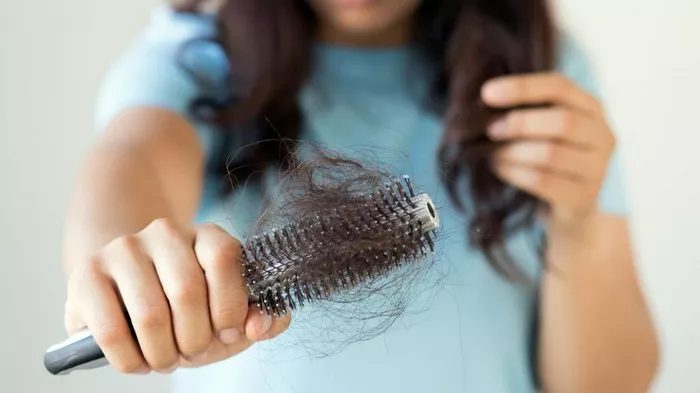In today’s fast-paced world, hair fall has become a common concern for many. Whether it’s due to stress, environmental factors, or nutritional deficiencies, addressing the issue of hair fall often begins with the right diet. In this comprehensive guide, we will explore the top dietary elements to include in your daily meals to help combat hair fall and promote a healthier mane. Let’s delve into the specifics and uncover the secrets to luscious locks.
1. Essential Nutrients for Hair Health
Hair fall is often linked to a deficiency of key nutrients. To promote hair growth and reduce hair fall, it’s crucial to include the following nutrients in your diet:
a. Biotin (Vitamin B7): Biotin plays a pivotal role in maintaining healthy hair. It is found in foods like eggs, nuts, and leafy greens. Consuming these regularly can significantly boost hair strength and reduce fall.
b. Protein: Hair is primarily composed of a protein called keratin. A diet rich in lean proteins such as lean meats, fish, and plant-based sources like lentils and beans can help prevent hair fall and encourage regrowth.
c. Iron: Iron deficiency is a common cause of hair fall, especially in women. Incorporate iron-rich foods like spinach, red meat, and lentils into your diet to combat this issue.
d. Omega-3 Fatty Acids: Omega-3 fatty acids found in fatty fish like salmon and flaxseeds are essential for maintaining a healthy scalp and hair. They help reduce inflammation and promote hair growth.
e. Vitamin D: Vitamin D is crucial for hair follicle health. You can get your dose of Vitamin D from sunlight exposure, fortified dairy products, or supplements.
2. Antioxidant-Rich Foods
Oxidative stress can damage hair follicles and lead to hair fall. Including antioxidant-rich foods in your diet can help combat this issue. Consider the following:
a. Berries: Blueberries, strawberries, and blackberries are packed with antioxidants that protect hair follicles from damage.
b. Nuts and Seeds: Almonds, walnuts, and sunflower seeds are excellent sources of vitamin E, which acts as an antioxidant for hair health.
c. Green Tea: Green tea contains catechins, which help to reduce hair fall and promote hair growth.
d. Colorful Vegetables: Vegetables like carrots, sweet potatoes, and peppers are loaded with antioxidants like beta-carotene, which is beneficial for hair health.
3. Hydration and Hair Fall
Adequate hydration is often overlooked but is crucial for maintaining healthy hair. Dehydration can make your hair brittle and prone to falling. Ensure you drink plenty of water daily to keep your hair well-hydrated.
4. Foods to Avoid
While it’s essential to include specific foods in your diet to combat hair fall, it’s equally important to avoid certain items that may contribute to the problem:
a. Sugary Foods: Excessive sugar consumption can lead to inflammation and hair fall. Cut down on sugary snacks and beverages.
b. Processed Foods: Highly processed foods often lack essential nutrients and can contribute to hair fall. Opt for whole, natural foods whenever possible.
c. Excessive Caffeine: Overconsumption of caffeine can lead to dehydration, which in turn affects hair health. Limit your caffeine intake and drink plenty of water.
5. Dietary Supplements
In some cases, it may be challenging to get all the necessary nutrients solely from your diet. In such instances, consider dietary supplements under the guidance of a healthcare professional. Supplements like biotin, iron, and omega-3 fatty acids can be beneficial for hair health.
6. Consult a Nutritionist or Healthcare Professional
Hair fall can be caused by a variety of factors, and each person’s needs may differ. It’s advisable to consult a nutritionist or healthcare professional to create a personalized diet plan tailored to your specific requirements. They can also recommend appropriate tests to identify any underlying nutritional deficiencies contributing to your hair fall.
See Also: How Long Does Temporary Hair Loss Last: What You Need To Know
In conclusion
Achieving healthier and fuller hair involves more than just buying expensive hair care products. It starts from within, with the food you consume daily. By including the right nutrients, antioxidants, and staying hydrated, you can effectively reduce hair fall and promote a lush, vibrant mane. Make the necessary dietary adjustments, and watch your hair transform from dull and fragile to resilient and beautiful. Remember, a balanced diet not only benefits your hair but your overall well-being as well.


